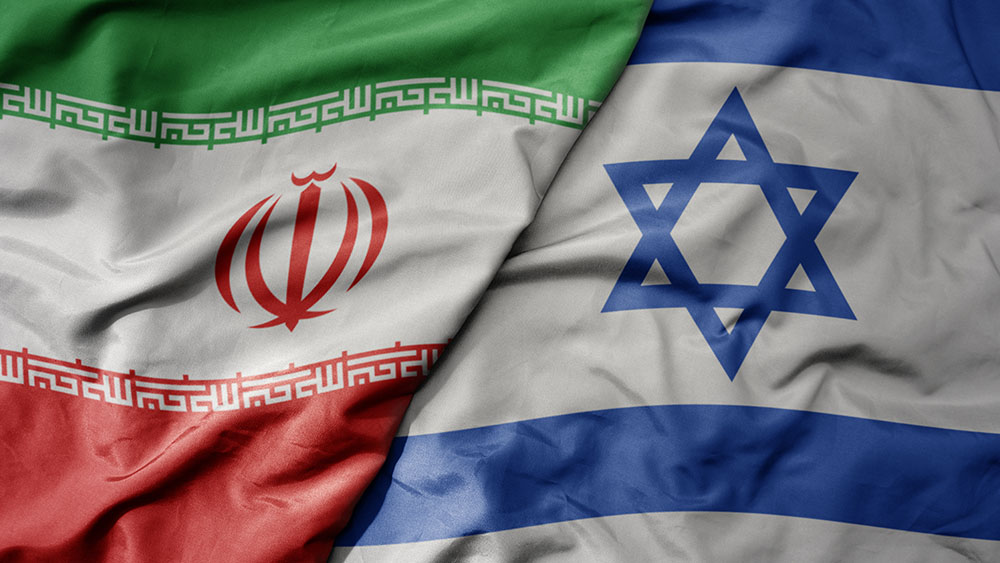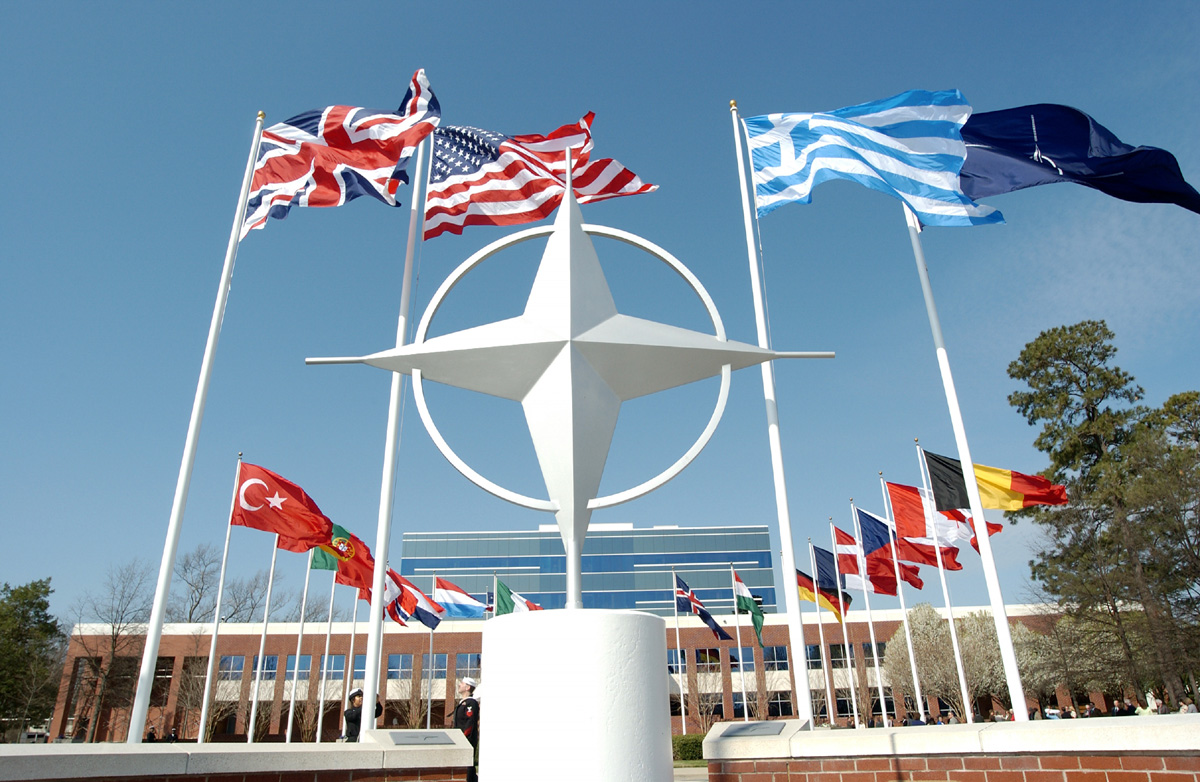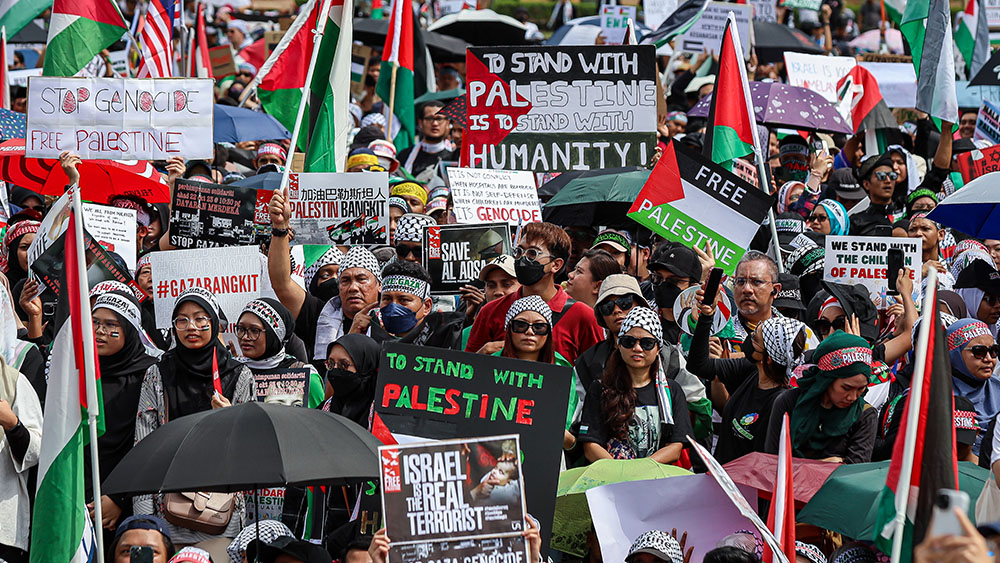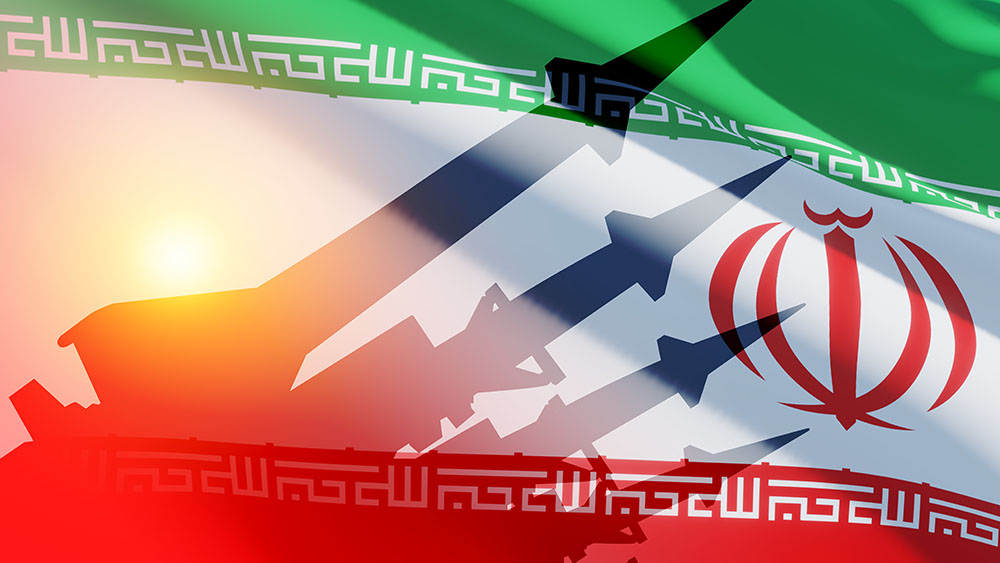Trump lashes out as Israel and Iran violate ceasefire, tensions remain high
06/25/2025 / By Cassie B.

- The Israel-Iran ceasefire brokered by President Trump collapsed within hours as both sides accused each other of violating it with new missile strikes.
- Trump expressed frustration, condemning both nations for breaking the truce and demanding Israel halt further attacks.
- The conflict began with Israeli airstrikes on Iran’s nuclear facilities, escalating into a regional crisis with U.S. involvement before the failed ceasefire.
- Casualties mount as Iran reports more than 600 dead, while Israel confirms 28 deaths, including civilians in a pre-ceasefire strike.
- Global reactions are mixed, with analysts warning of further escalation as tensions remain high and Trump’s diplomatic credibility is tested.
The tenuous ceasefire brokered by President Donald Trump between Israel and Iran collapsed just hours after it was supposed to take effect, as both nations accused each other of violating the truce with fresh missile strikes Tuesday. The conflict, now in its 12th day, began with Israeli airstrikes targeting Iran’s nuclear facilities and escalated into a dangerous regional confrontation, drawing in the U.S. before a shaky pause was announced. But by midmorning, sirens blared across northern Israel as Tehran allegedly launched missiles, prompting Israeli retaliation—and a furious rebuke from Trump, who demanded both sides stand down.
A ceasefire in name only
The ceasefire, announced by Trump late Monday, was meant to halt hostilities after days of escalating violence. But by Tuesday morning, Israel’s military reported intercepting two Iranian missiles, while Iran’s state media denied any attack. Explosions were also reported in northern Iran, with Israeli officials confirming strikes on a radar site near Tehran.
Trump, who had touted the truce as a major diplomatic victory, did not hold back his frustration. “They violated it, but Israel violated it too,” he told reporters before departing for a NATO summit. “I’m not happy with Israel.” The president later posted on Truth Social, demanding, “ISRAEL. DO NOT DROP THOSE BOMBS. IF YOU DO IT IS A MAJOR VIOLATION. BRING YOUR PILOTS HOME, NOW!”
Netanyahu’s office acknowledged Israel’s limited retaliation but said further strikes were halted after Trump’s intervention. “Following President Trump’s conversation with Prime Minister Netanyahu, Israel refrained from additional attacks,” the Israeli government stated.
How the conflict began
The crisis erupted on June 13 when Israel launched preemptive strikes against Iran’s nuclear and military sites, citing intelligence that Tehran was nearing weapons-grade uranium enrichment. The U.S. later joined the offensive, dropping bunker-buster bombs on Iran’s Fordow facility over the weekend. Iran retaliated with a missile strike on a U.S. base in Qatar, which Trump downplayed as a “face-saving” move.
The toll has been devastating. Iran’s health ministry reported 606 dead, including 107 in the last 24 hours, though independent groups estimate higher casualties. In Israel, four civilians were killed in a pre-ceasefire Iranian strike on Beersheba, bringing the total Israeli death toll to 28.
Global reactions and fears of escalation
Qatar, which helped mediate the ceasefire, condemned Iran’s attack on the Al Udeid Air Base, with Prime Minister Mohammed bin Abdulrahman Al Thani calling it “unacceptable” and a “scar” on relations. Meanwhile, Russia cautiously welcomed the truce, with the Kremlin stating, “We hope that this will be a sustainable ceasefire.”
Analysts warn that the situation remains volatile and there is a risk of further breakdown. Trump’s gamble that U.S. strikes would force Iran to the table has yet to yield lasting peace.
What comes next?
With tensions still simmering, the White House faces an uphill battle to prevent another flare-up. Trump’s credibility as a dealmaker is on the line, and Israel’s far-right ministers are already pushing to refocus military efforts on Gaza. Meanwhile, Iran’s regime, reeling from the destruction of its nuclear program, may seek to reassert control through internal crackdowns.
Right now, two bitter enemies are teetering between war and an uneasy peace. As Trump put it: “These guys got to calm down.” Whether they will actually do so remains to be seen.
Sources for this article include:
Submit a correction >>
Tagged Under:
big government, ceasefire, chaos, Collapse, Dangerous, diplomacy, Donald Trump, foreign relations, Iran, Israel, Israel-Iran war, national security, outrage, Qatar, violence, WWIII
This article may contain statements that reflect the opinion of the author


















